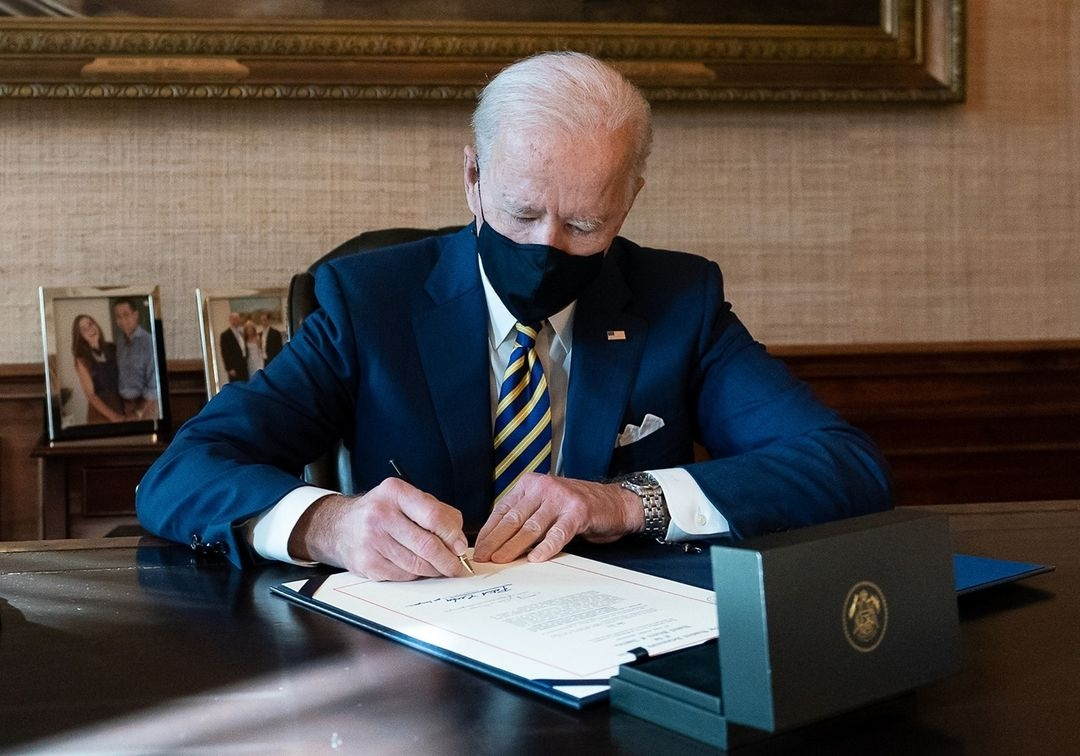The Biden administration appears to be going ahead with the Trump-era hard line on banning business with China’s technology firms that are deemed to pose a threat to the United States, the US Commerce Department said on Friday.
“Trustworthy information and communications technology and services are essential to our national and economic security and remains a top priority for the Biden Harris administration,” the statement said.
The rule had been issued in the final days of the Trump administration in January aimed at addressing information and communications technology supply chain concerns and would become effective after a 60-day period of public comment.
On Friday, a Commerce Department spokesperson said in a statement the department would continue to accept public comment on the rule until March 22, when it would go into effect.
The US Chamber of Commerce and groups representing major industries had raised concerns in a letter to the Commerce Department in January that the interim rule gave it “nearly unlimited authority to intervene in virtually any commercial transaction between US companies and their foreign counterparts that involves technology, with little to no due process, accountability, transparency, or coordination with other government programs,” according to a Reuters report.
The Wall Street Journal has also reported the Biden administration’s plans to continue with the hard line on Chinese companies.
The initiative forms part of the strategy to decouple the US economy from China which has exploited western technology and markets to build a monster of an economy that has been fuelling its military build-up.
Firms on black list
The Trump administration had first blacklisted Chinese companies such as telecom giant Huawei, top chipmaker SMIC, drone manufacturer SZ DJI Technology and smartphone maker Xiaomi.
This was followed up with another black list of 58 major Chinese companies which will not be allowed to buy goods or technology from American firms as Beijing is using these companies to build the dragon’s military muscle.
Seven subsidiary companies of Aviation Industry Corporation of China (AVIC) figure on the list which has been published on the US Commerce Department website. American corporate giants General Electric Co and Honeywell International both have joint ventures with AVIC and supply Commercial Aircraft Corporation of China (COMAC), which is spearheading Chinese efforts to compete with Boeing Co and Airbus.
The Trump administration wanted to cut off such links which enable China to get ready access to goods and technology from leading US companies. The ban could go beyond this list as the Commerce Department has issued an advisory asking all US companies to do their own due diligence as well when dealing with Chinese companies to ensure that they do not have any military ties.
It has expanded the definition of “military end-users,” to include any person or entity that supports or contributes to the maintenance or production of military items even if their business is primarily non-military.
The move came at the fag-end of the Trump administration’s tenure which made a big push against China and highlighted the risks posed by the close relationship between some Chinese companies and the Chinese government.
This policy is being continued under the Biden administration as well.
Data on China’s espionage
A massive data leak in January this year had also exposed China’s devious strategy of carrying out worldwide industrial espionage to build its technology base by infiltrating multinational corporations.
The Australian newspaper obtained the leaked database which has the names of around two million Communist Party of China (CCP) members along with their party position, birth-date, national ID number and ethnicity. The companies that are reported to have been infiltrated by the Chinese spy network include the world’s leading manufacturers such as US plane-maker Boeing, auto giant Volkswagen, pharmaceutical majors like Pfizer and AstraZeneca, and banks such as ANZ and HSBC. According to the documents, around 600 people at HSBC, Standard Chartered banks are CCP members.




















